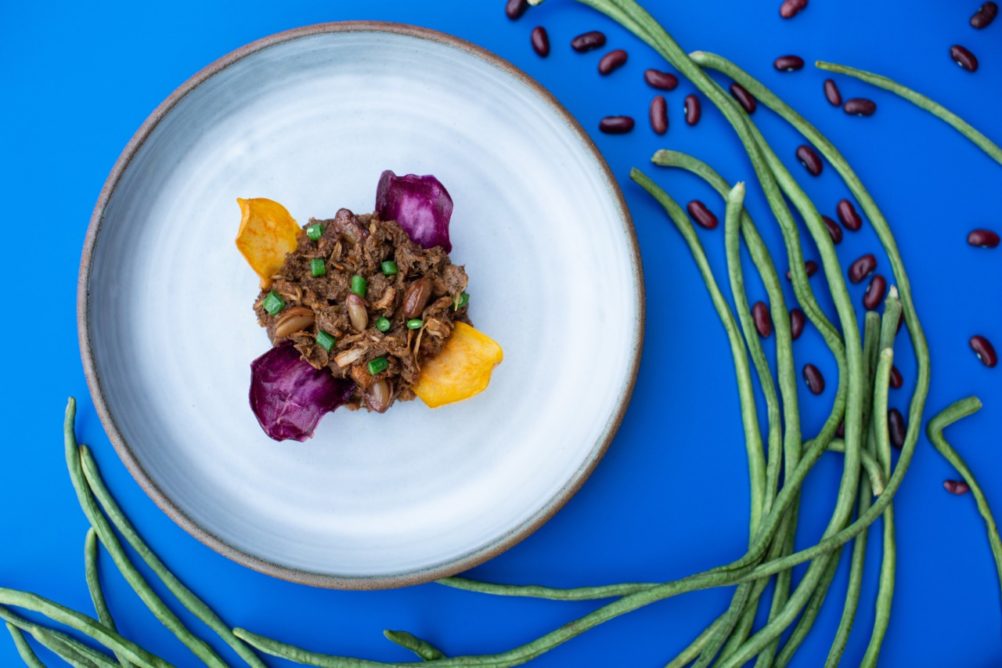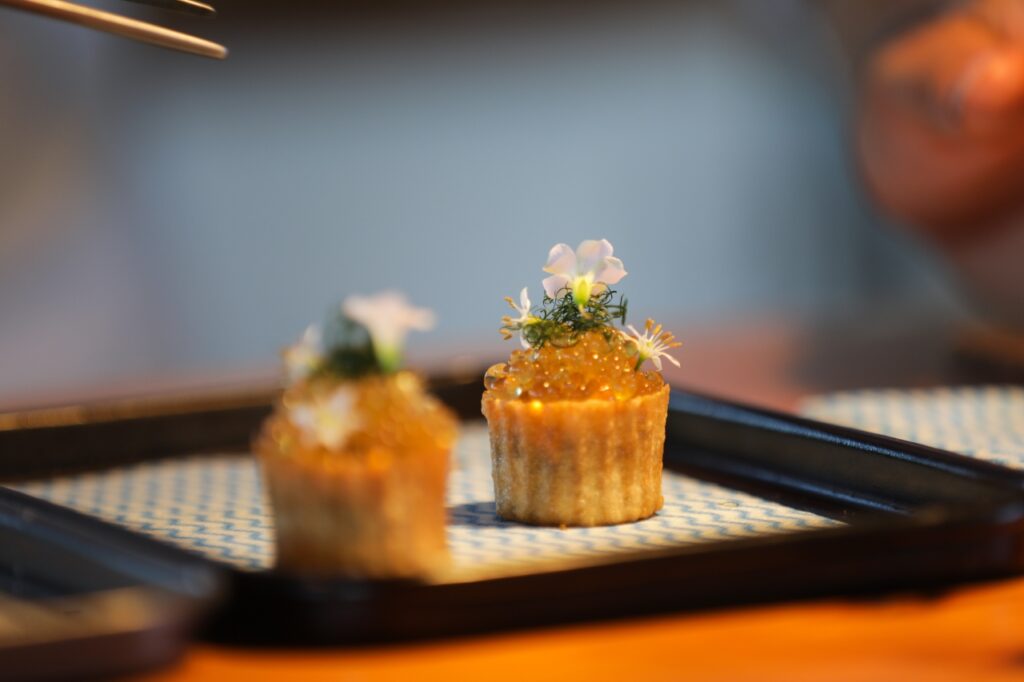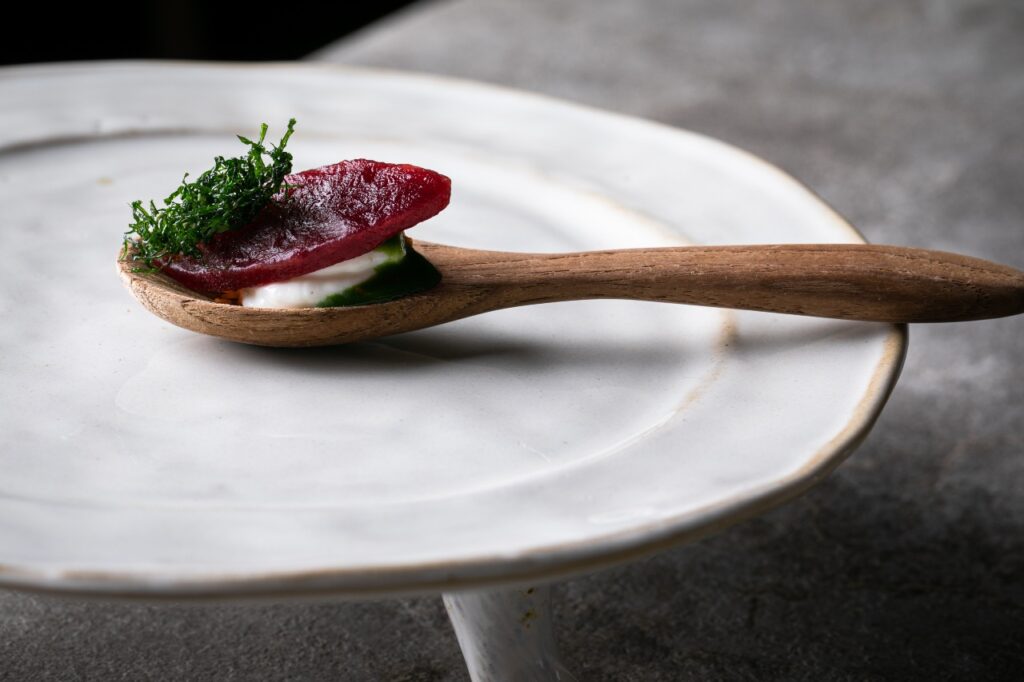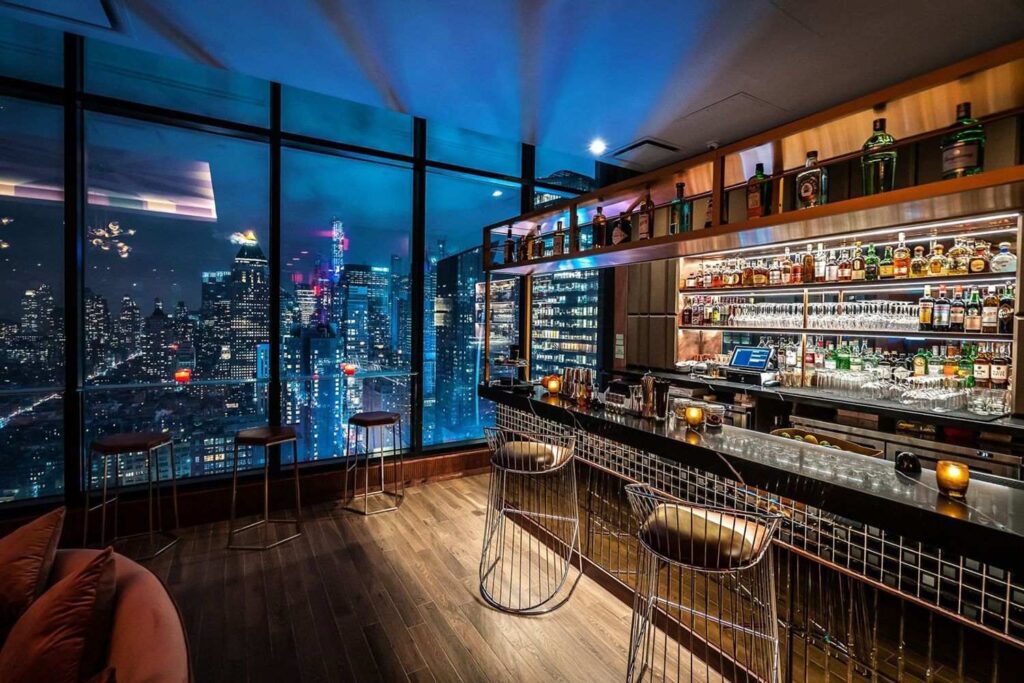Zero waste dining in Bali
and beyond
Good food, good vibes – and it’s good for the planet, too.
Words by Ute Junker
Photos supplied
Love a good rendang? Then wait until you try Tanaman’s version. It has all the traditional flavours you expect – tamarind, galangal, cardamom, clove – with one big difference. This version is made not with beef, but with jackfruit.
In fact, all the perfectly-executed Indonesian classics at Tanaman, the new restaurant at Desa Potato Head Beach Club, are entirely vegan. That, however, is not what puts Tanaman ahead of the curve. Tanaman’s most remarkable feature is that, like every other restaurant at Seminyak’s most famous beach club, it generates zero waste.
A waste-free restaurant sounds like mission impossible, but creative and committed chefs around the world are proving that it is achievable. You can find zero-waste restaurants eateries in London (Silo), Helsinki (Restaurant Nolla) and Berlin, where Frea, another vegan diner, is known for dishes such as potato terrine with portobello mushrooms and parsley root puree.
So how do you create a restaurant that generates no waste whatsoever? By starting at the very beginning, says Rushi Krishna, Potato Head’s director of operations. She says the Potato Head team worked with the farmers who grow their produce and ensuring that instead of wrapping their deliveries in plastic, they use more eco-friendly options, such as wrapping fresh herbs in coriander leaves.
The team also negotiated with other vendors. “One big victory last year was investing in reusable containers for ice deliveries, which used to be delivered in plastic bags,” Krishna says. “Catering for 2000 people every day, we go through a lot of ice.”
The next crucial step is designing the menu. “You need to investigate ingredient by ingredient and look at every step, from delivery to disposal,” Krishna says. “We maximise the value of every ingredient; if we use a vegetable in a dish, we make sure we also use the juice and the skin. Even the leaves are used, as garnish,” Krishna says. Old cooking oil is used to make the candles that are put on tables, beside glasses that were once beer bottles.
Asked to identify the biggest challenge in going zero-waste, Krishna laughs. “The fish scales!” Potato Head’s seafood restaurant, Ijen, generates five kilos of fish scales a day. However, the team found a creative solution: they use the fish scales to create crackers that are served as a welcome snack.



